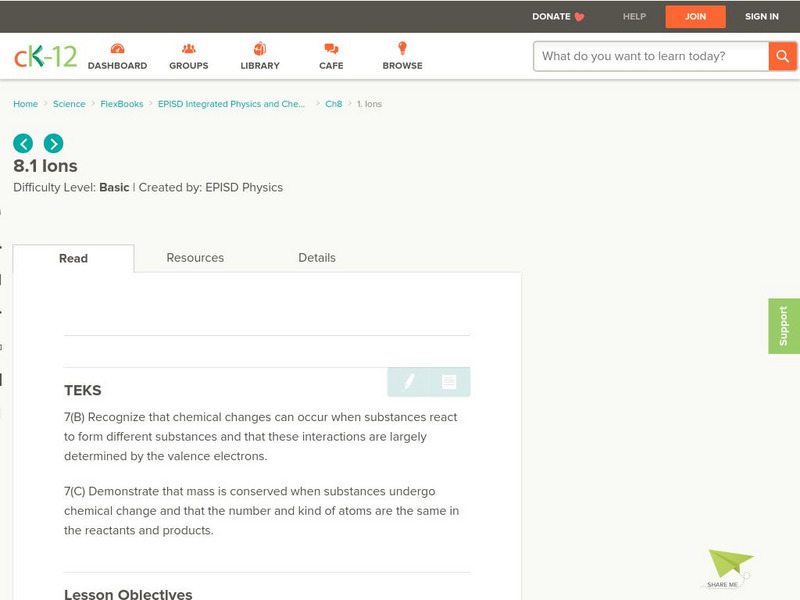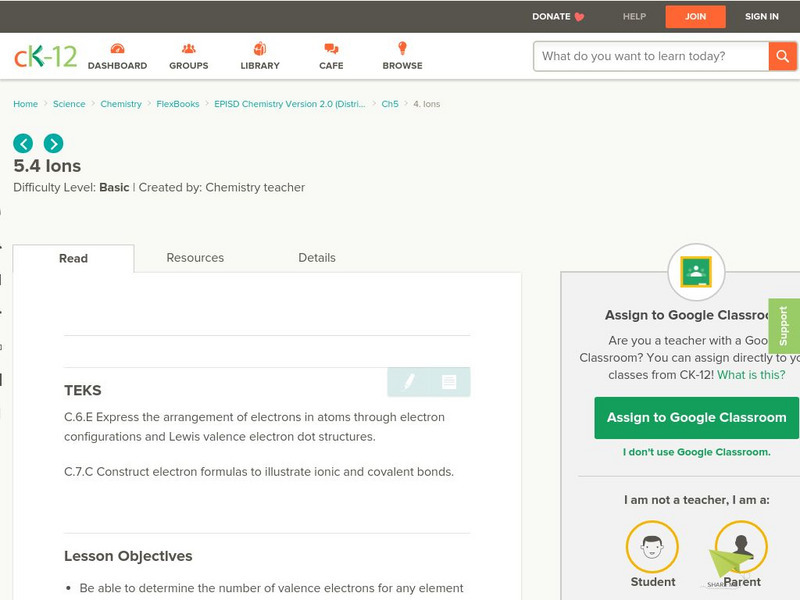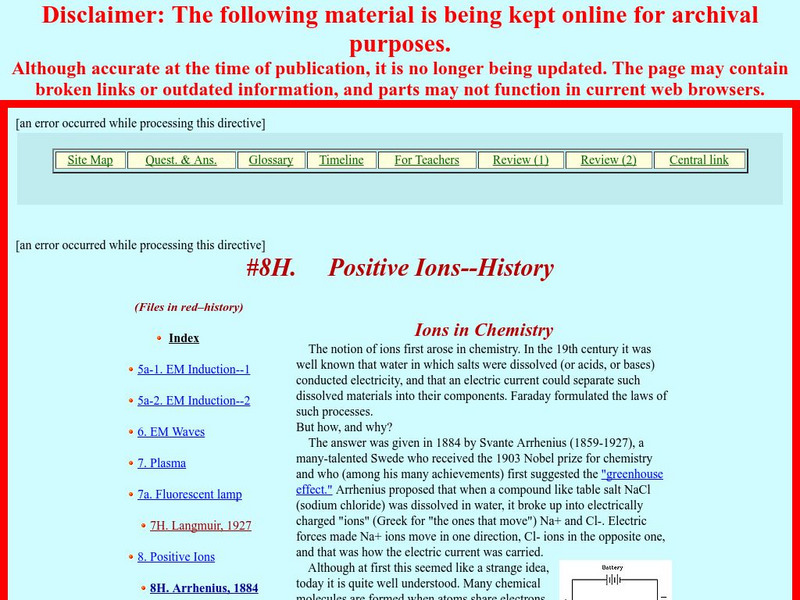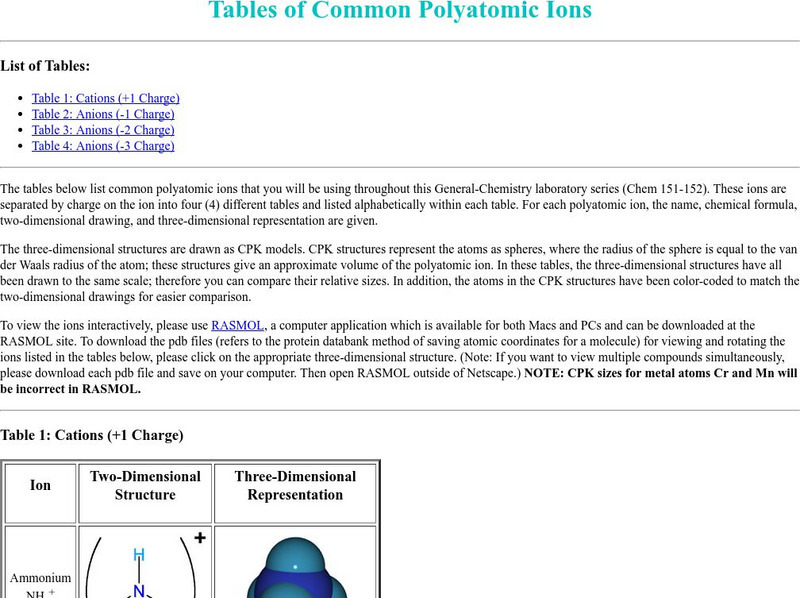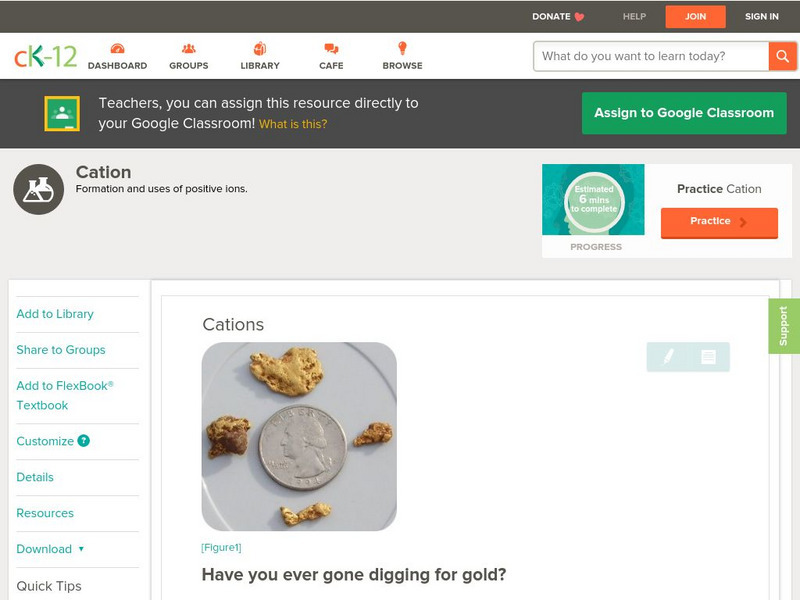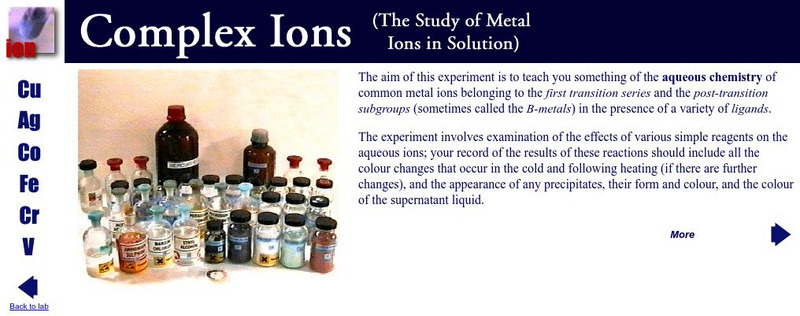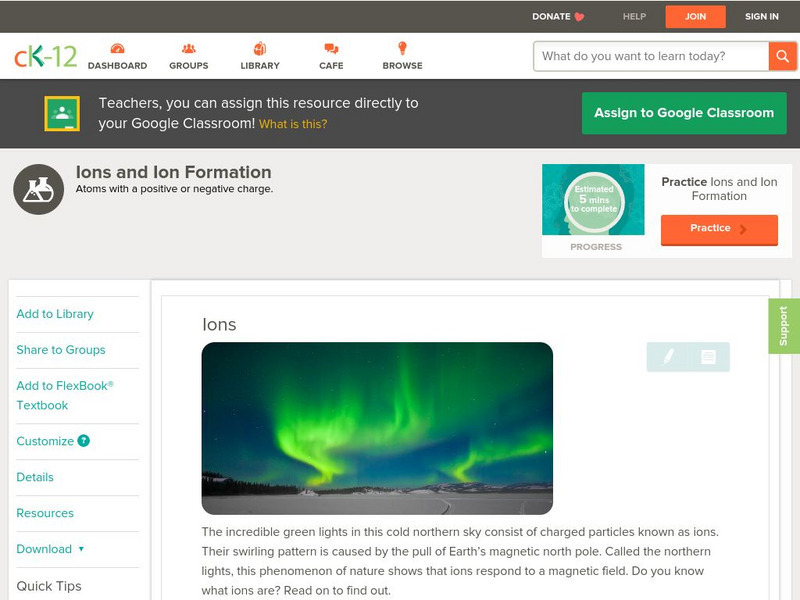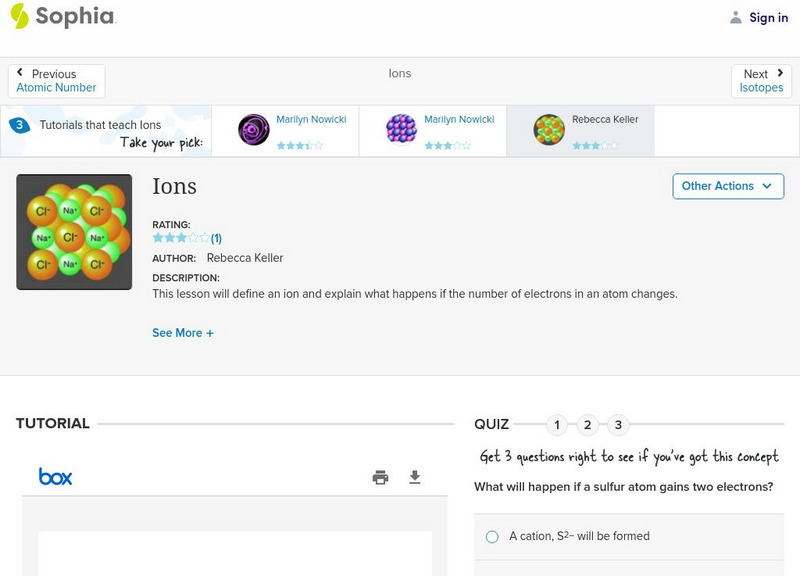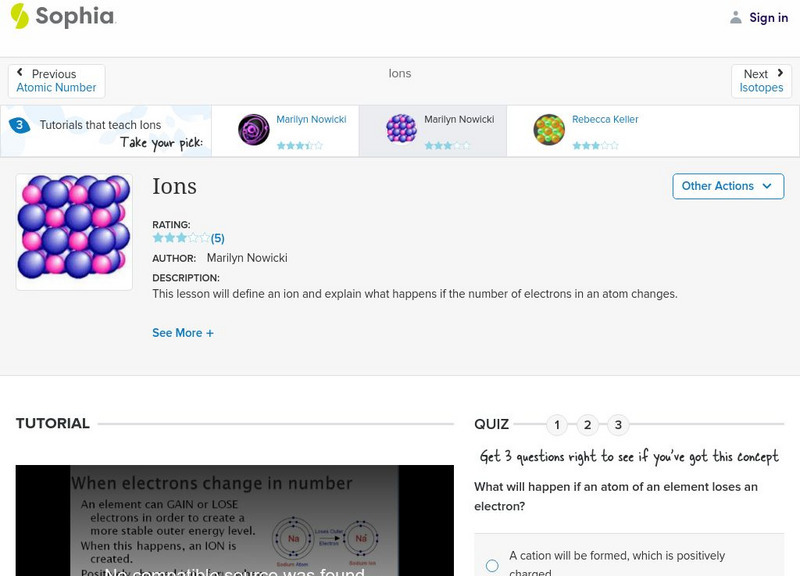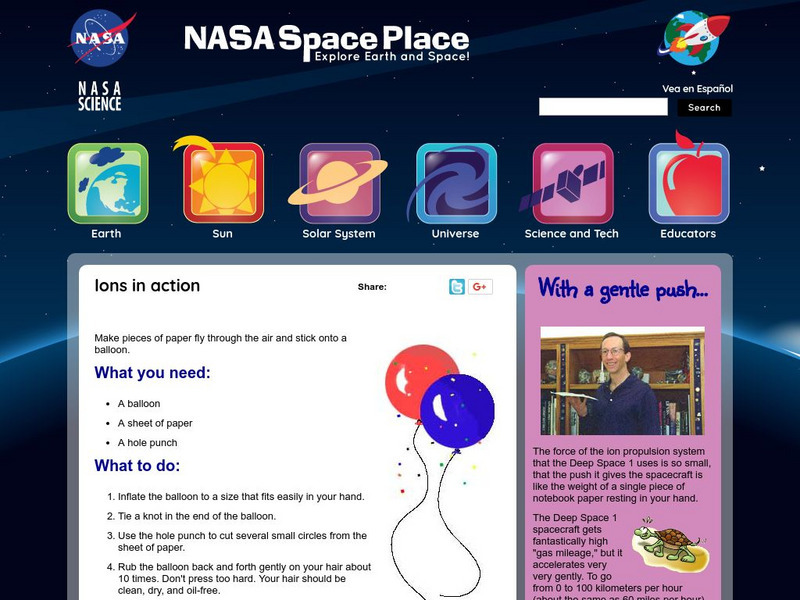Curated OER
Cation Separation and Identification
Students conduct an experiment in which they systematically separate cations from a mixture of substances. They use the following types of reactions to do so: precipitation, acids and bases, oxidation and reduction. They compare a...
Vision Learning
Visionlearning: Atomic Theory: Bohr and the Beginnings of Quantum Theory
Description of the ideas and experimentation that led to quantum theory. Focus on electrically charged ions and isotopes.
Dartmouth College
Dartmouth College: Chem Lab: Soluble Puzzles, Cations
These interactive chemistry experiments let you choose the chemicals and measurements and provide results that you analyze. Requires Java.
CK-12 Foundation
Ck 12: Ions
[Free Registration/Login may be required to access all resource tools.] In this lesson, students learn ways to predict what type of ion a given element is likely to form.
CK-12 Foundation
Ck 12: Ions
[Free Registration/Login may be required to access all resource tools.] In the following online tutorial students will be able to determine the number of valence electrons for any element and draw an electron dot diagram for any atom....
NASA
Nasa: Positive Ions History
As the title suggests, this page from NASA goes over the history of man's study of positive ions. How did we come to know what we now know about cations?
Chiral Publishing
Chiral Publishing: An Introduction to Chemistry: Cation Names and Formulas
Learn how to predict cation names, charges, and formulas. See how you can use the periodic table to help predict what metallic atoms will do.
Chiral Publishing
Chiral Publishing: An Introduction to Chemistry: Naming Cations
Test yourself to see how well you know the names and formulas of some common cations. This useful animation will help you memorize the names and formulas.
Science Education Resource Center at Carleton College
Serc: Qualitative Analysis: Guided Inquiry
In this experiment, students will design and carry out a sequence of chemical reactions for the separation and identification of three metal cations from six unknown samples.
Science Education Resource Center at Carleton College
Serc: Properties of Cations: Flame Test Lab
In this lab, students will learn the relationship between color emitted by atoms of metal compounds and their electron structure by using the flame test.
Wikimedia
Wikipedia: Ion
This site is an encyclopedia article from the Wikipedia Encyclopedia on Ion. Throughout the site, links are provided for additional information. The information is somewhat in-depth, but also very factual and interesting.
Simon Fraser University
Chem1 Virtual Textbook: Naming the Ions
As part of the "Basic Atomics" section of the Virtual Textbook, this site examines the naming system of ions, with specific attention given to cations and anions. Oxyanions and multivalent cations are also discussed.
Other
Aus E Tute: Naming Ionic Compounds
This tutorial offers an explanation and multiple examples of ionic compounds and how to name them appropriately. Includes a small quiz to test your understanding.
Other
Washington University: Polyatomic Ions
This page from the Department of Chemistry at Washington University provides attractive Lewis dot diagrams and three-dimensional models for many of the common polyatomic ions. The images will make your visit worthwhile.
Other
Bsi Education: Qualitative Analysis
The Applied Science resource consists of practical activities that demonstrate the importance of standard procedures in scientific work. Students analyze qualitative data through a variety of activities. Some topics investigated are...
Quia
Quia: Common Type Ii Cations
This page links to a number of Java games that are designed to make learning the names, symbols and charges of the various cations fun.
Quia
Quia: Common Monotomic Cations and Anions
This page links to a number of fun Java games, designed to help students learn the names and symbols of various ions. Games include matching, concentration and word search.
CK-12 Foundation
Ck 12: Chemistry: Cations
[Free Registration/Login may be required to access all resource tools.] Covers cation, cation formation, cation nomenclature, and cation uses.
University of Oxford (UK)
Complex Ions: The Study of Metal Ions in Solution
This site provides examples of ionization with the use of Quicktime video clips.
CK-12 Foundation
Ck 12: Physical Science: Ions
[Free Registration/Login may be required to access all resource tools.] A learning tutorial about ions, how they form and their properties.
Sophia Learning
Sophia: Ions: Lesson 2
This lesson will define an ion and explain what happens if the number of electrons in an atom changes. It is 2 of 3 in the series titled "Ions."
Sophia Learning
Sophia: Ions: Lesson 1
This lesson will define an ion and explain what happens if the number of electrons in an atom changes. It is 1 of 3 in the series titled "Ions."
NASA
Nasa: The Space Place: Ions in Action
The page from NASA's The Space Place describes a simple activity, charging a balloon and making it move small pieces of paper. It then goes on to give an excellent explanation of how the activity works, and how it involves ions. This...
Science Struck
Science Struck: How to Find Protons, Neutrons and Electrons
Brief explanations of how to determine how many protons, neutrons, and electrons are in an element.





